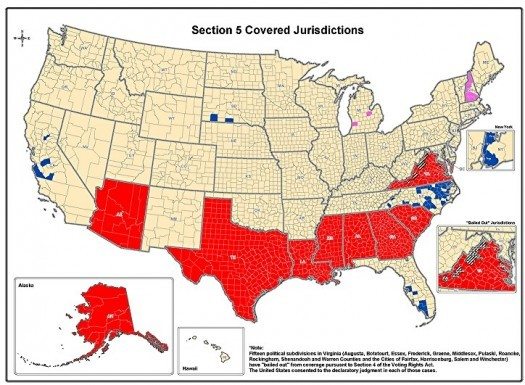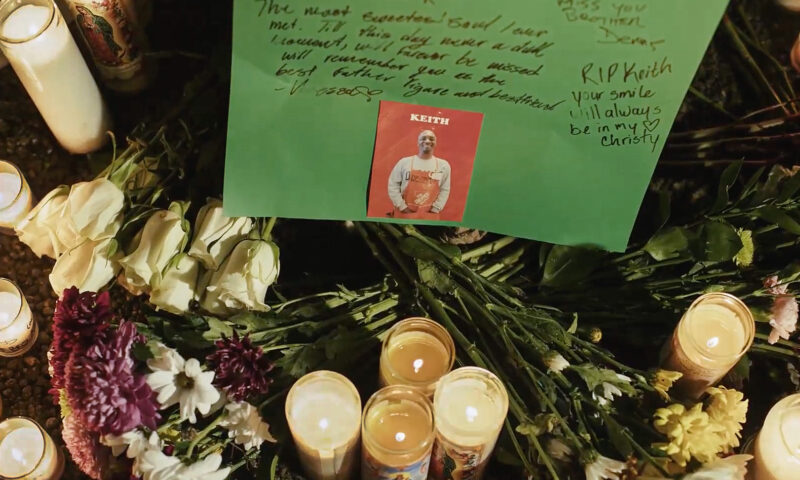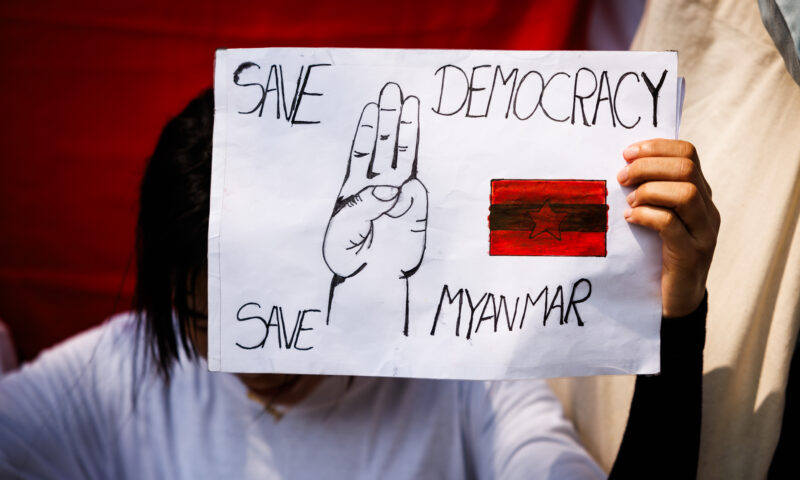Politics & Government
Voting Rights Act: Down But Not Dead

The Supreme Court’s activist conservative majority, in a 5-4 vote on June 25, threw out the provision of the 1965 Voting Rights Act which required states and localities (mostly in the Old Confederacy) to clear any changes in electoral law with the federal Department of Justice. The argument was that the criteria and standards used by Congress were obsolete. Congress is invited to revise them, but of course everyone (including the justices) knows that this Congress is too gridlocked to agree on anything of the sort.
But, to paraphrase the old saying, when the Court gives you lemons, make lemonade. As the Court’s opinion affirms, conditions surrounding voting in this country are now radically different than they were in 1965. The old Democratic Solid South with legal discrimination against African American voters has been replaced by a Republican hegemony that is adapted to black voting. At the same time, Republicans have dedicated themselves across the entire country to various measures transparently intended to suppress minority voting, such as photo ID laws. And highly sophisticated redistricting after the Republican gains in 2010 had worked systematically to reduce the weight of those minorities who do vote.
The Court did not invalidate the entire law: its prohibition of discrimination against minority voters still stands. Thus, there is room for vigorous enforcement across the entire nation. The Justice Department certainly has authority to challenge discrimination anywhere in the country. And private plaintiffs with standing to sue can bring suit if they believe they have been discriminated against in voting.
Thus the Court’s decision actually holds the potential of broadening the scope of a law that was formerly focused only on the South; what we face now is not a recalcitrant region so much as a national party that has adopted voter suppression as a policy.
Scalia, Roberts and their colleagues probably think they’ve struck a death blow to the Voting Rights Act, without actually ruling it unconstitutional. Time to prove them wrong.
(John Peeler is a retired professor of political science at Bucknell University, specializing in Latin American and international affairs. This post first appeared on LA Progressive and is republished with permission.)

-

 Latest NewsJanuary 8, 2026
Latest NewsJanuary 8, 2026Why No Charges? Friends, Family of Man Killed by Off-Duty ICE Officer Ask After New Year’s Eve Shooting.
-

 The SlickJanuary 12, 2026
The SlickJanuary 12, 2026Will an Old Pennsylvania Coal Town Get a Reboot From AI?
-

 Pain & ProfitJanuary 7, 2026
Pain & ProfitJanuary 7, 2026Trump’s Biggest Inaugural Donor Benefits from Policy Changes That Raise Worker Safety Concerns
-

 Latest NewsJanuary 6, 2026
Latest NewsJanuary 6, 2026In a Time of Extreme Peril, Burmese Journalists Tell Stories From the Shadows
-

 Latest NewsJanuary 13, 2026
Latest NewsJanuary 13, 2026Straight Out of Project 2025: Trump’s Immigration Plan Was Clear
-

 Column - State of InequalityJanuary 8, 2026
Column - State of InequalityJanuary 8, 2026Can California’s New Immigrant Laws Help — and Hold Up in Court?
-

 Column - California UncoveredJanuary 14, 2026
Column - California UncoveredJanuary 14, 2026Keeping People With Their Pets Can Help L.A.’s Housing Crisis — and Mental Health
-

 Latest NewsJanuary 16, 2026
Latest NewsJanuary 16, 2026Homes That Survived the 2025 L.A. Fires Are Still Contaminated

